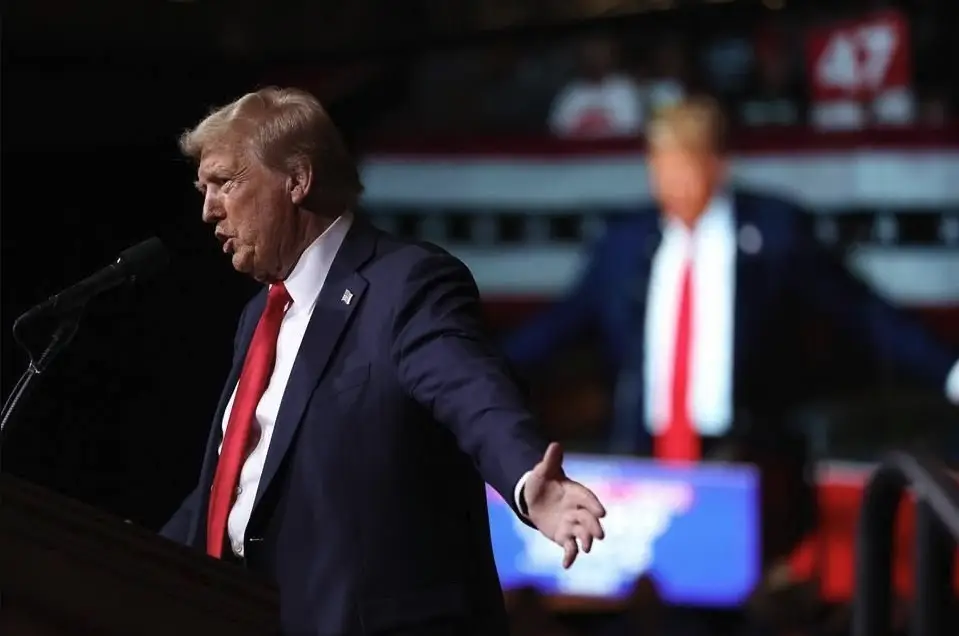Let’s imagine that the global economy is Central America, that Costa Rica imports more goods than it exports, that other countries accept printed papers from its Central Bank — banknotes in colones — as payment for their exports, that they use a significant part of their trade surpluses to buy Costa Rican government bonds and make deposits in its banks, accepting, due to their confidence in the country’s economic solidity, lower interest rates than they could obtain in other markets, and that those debts can be serviced with the same printed papers.
Trade deficits arise because a significant proportion of Costa Rican consumers and investors prefer to supply themselves with final, intermediate, and capital goods from Central American countries where prices are lower than local ones. In other words, these deficits are the consequence of the country choosing to enjoy a higher standard of living and productivity than what its economy’s capabilities would naturally allow. In these circumstances, far from being a victim of other countries’ policies, Costa Rica would actually be enjoying levels of consumption beyond its means and higher economic growth than its productivity would warrant.
The willingness of these countries to hold the colones derived from their trade surpluses in Costa Rican government bonds and bank deposits results in lower interest rates in Costa Rica. It allows for a higher sustainable level of public debt, greater investment at low cost to expand infrastructure and improve services, and lower interest rates for private investment, all of which contribute to a higher economic growth rate without endangering macroeconomic stability.
In this situation, making imports more expensive through tariffs to boost local production competitiveness and eliminate trade deficits would dismantle these advantages one by one — it would be nothing more than an own goal. This remains true even if the Central American countries did not retaliate by restoring relative competitiveness to its original point and even if there were no investor uncertainty about whether a future government would remove the tariffs.
The U.S. economy, in its relationship with the world, mirrors this hypothetical Costa Rican situation. It benefits from the fact that with a piece of paper printed by its central bank — the dollar — it can pay for real goods produced by other countries and thus live far beyond its means. Far from being swindled by other countries, as Trump claims, the United States enjoys a standard of living beyond its capabilities precisely because of this reality. This does not mean that the United States is swindling others — it is due to its economic strength that the rest of the world accepts the dollar as a means of payment and trusts its government bonds and banks.
Thus, by assuming that trade relations are a zero-sum game where one must lose for the other to win, and that a trade deficit reflects losing while a surplus means winning, President Trump ignores these realities and reveals a simplistic, checkerboard vision far removed from the complex chess dynamics that characterize international trade: it is nothing more than a gigantic own goal.
Trade deficits are an economic problem for countries like Costa Rica, which must pay for imports with foreign currency, often having to incur debt and/or attract foreign investment through subsidies and tax exemptions. This combination permanently endangers macroeconomic stability and forces limits on infrastructure and social spending to free up resources for servicing interest payments and covering the rising fiscal costs of an economy based on subsidies and tax breaks to foreign companies.
To add to the absurdity of Trump’s ideas, his goal is to achieve trade surpluses with every country in the world. The United States does not produce coffee or cocoa; with some countries exporting these products, running deficits is not only inevitable but also convenient. Many countries in the region, even without the advantages enjoyed by the United States, perhaps cannot avoid running deficits with oil-producing nations or countries that manufacture high-tech goods. Raising tariffs in these cases could severely harm their economies.
Trump boasts that countries affected by the tariffs are lining up to renegotiate, and that this was his objective. If so, an uncertain period begins, contaminated by threats and blackmail, with China standing by to benefit from global resentment toward the United States. This scenario will severely affect private sector investment plans, employment, and economic growth — not only in the United States but worldwide.
Far from Making America Great Again (MAGA), Trump is shrinking both his country and the world while violating all international trade rules, including those of the WTO and agreements such as CAFTA-DR. This, of course, validates those of us who argued that it was never true that free access to the U.S. market would be shielded from political or geopolitical contingencies through that agreement. Historically, in international relations, decisions have not depended on moral or legal absolutes but on the exercise of power from unequal positions (might is right). That is why we always doubted that a free trade agreement with weaker countries would guide U.S. behavior.
Moreover, Trump’s overwhelming violations of international law — shockingly and disappointingly supported by more than half of the political power in his country — strip the United States of any moral authority to lecture other nations about adherence to the rules. Trump’s attitude, reaffirmed when he paraphrases emperors and tyrants who despised democratic principles and claimed that “those who save their country break no law,” leads us to a world where power justifies anything. From the standpoint of the very definition of civilization, a world where anything goes is a world that ceases to have value. It takes us back to the law of the jungle — the rule of the strongest, of violence and war, or of peace imposed by dominance rather than by harmony and will.
This is not a new Washington Consensus, now driven by the mercantilism typical of the 18th and 19th centuries, because in this case neither multilateral organizations like the World Bank or the International Monetary Fund nor other Western powers support Trump’s decisions. Far from consensus, the word most often heard today in those circles is retaliation.
Latin America will be affected, due to the potential fall in global GDP growth, tariffs against our exports, and higher interest rates resulting from inflation that could be triggered by increased import taxes in the U.S. However, the region could benefit from the rift between the U.S. and its traditional allies, by strengthening economic relations with Europe, China, Japan, India, and other powers of the Global South — without, of course, abandoning the North American market.
To achieve this, our governments must stop meekly following Trump’s directives — such as preventing Huawei from competing to sell us 5G technology, participating in shameful deportation policies that violate fundamental human rights, or undermining Panama’s absolute sovereignty over the Canal. Instead, we must, with dignity, build and implement a foreign policy that best serves the interests of each of our countries… not the whims of a superpower.
*Machine translation proofread by Janaína da Silva.













